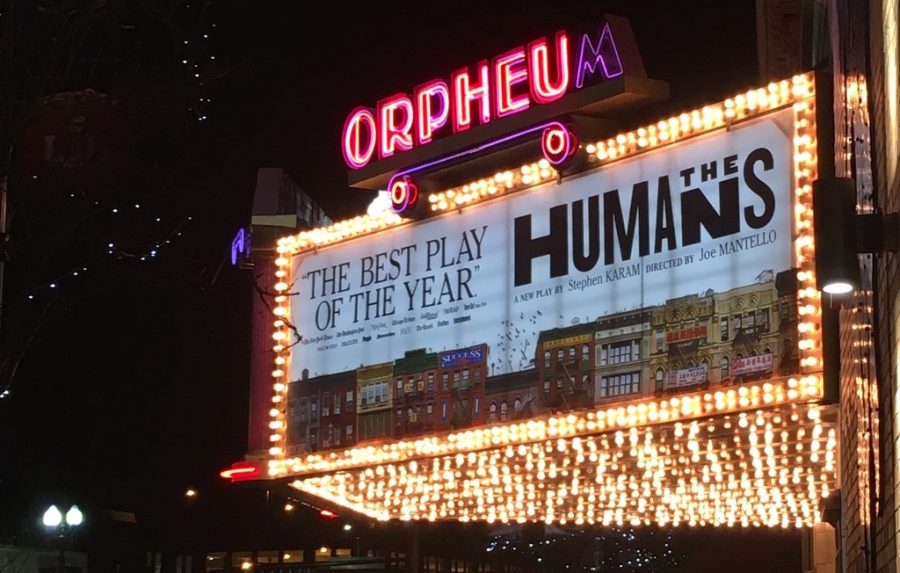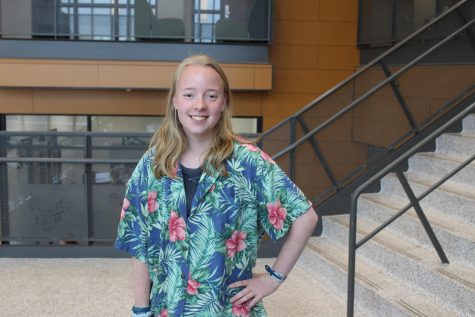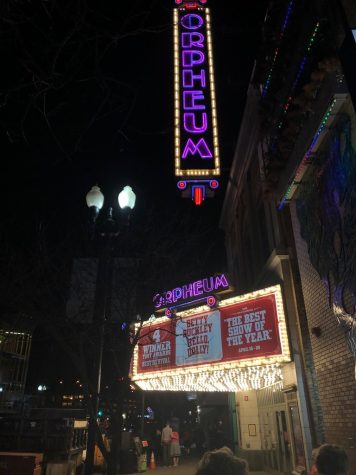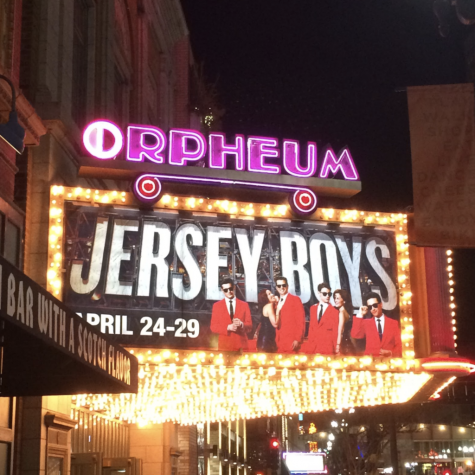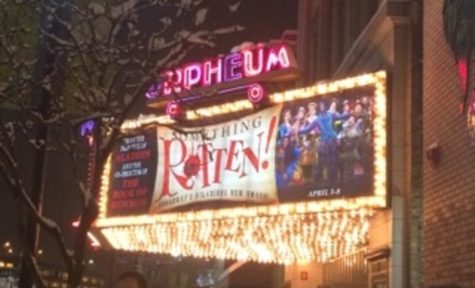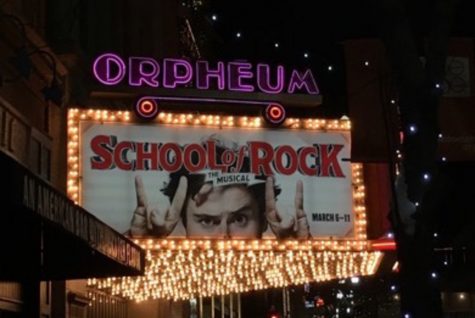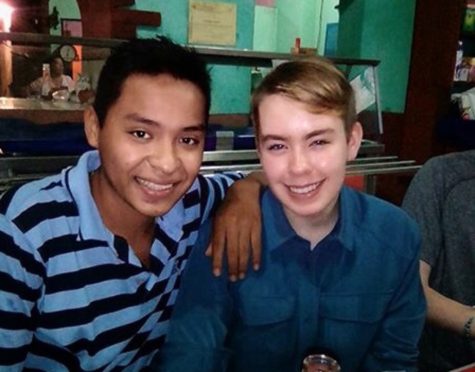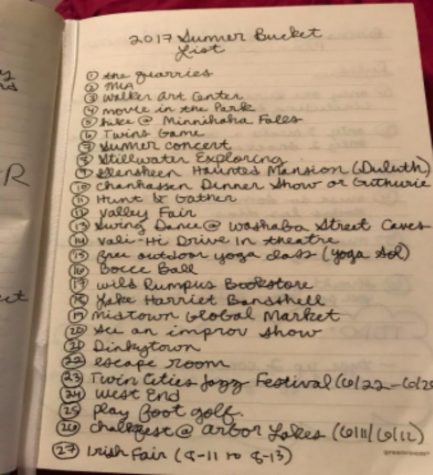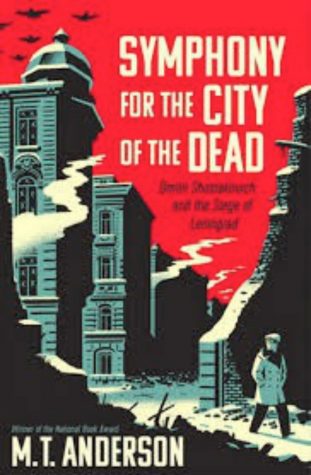Heartfelt and Intensely Humane, ‘The Humans’ is Filled with Realism
February 16, 2018
‘The Humans’ is a one-act play written by Stephen Karam, which opened on Broadway in 2016. The play was named “the best play of the year” by the New York Times as well as other national recognized publications, such as the Washington Post and the New York Magazine. After winning four Tony Awards, including Best Play and Best Scenic Design, ‘The Humans’ began its US tour in November and is currently playing at the Orpheum Theatre in Minneapolis until Feb. 18. ‘The Humans’ follows a typical middle class family, the Blakes, as they reunite for Thanksgiving, bring both literal and mental baggage with them. Over the course of the 90 minute play, the audience begins to understand that this family is anything but typical, as secrets grudgingly begin to seep out of the dingy New York duplex apartment. The dialogue is realistic, tinged with the kind of comedic one-liners and friendly squabbles that only emerge when people have know each other for years. ‘The Humans’ toes the line between comedy and drama, as it grapples with everyday topics such as mental health, financial well being, and family dynamics.
The set is designed by David Zinn and remains the same throughout the course of the play. The Chinatown apartment is filled with details, discolored patches of paint near the baseboards, a spiral staircase, windows covered with bars, and haphazardly strung twinkle lights. While a majority of the play takes course on the basement level, in the kitchen and dining room space, the family travels up and down the staircase, creating flurries of activity both upstairs and downstairs. The apartment creates a haunting atmosphere as family secrets begin to spill, light bulbs burn out, and the mysterious noises coming from the upstairs neighbors only get louder.
Brigid (Daisy Eagan) is the youngest daughter to Erik (Richard Thomas) and Deirdre Blake (Pamela Reed), and recently became the owner of the apartment with her boyfriend, Richard Saad (Luis Vega). Brigid struggles with unemployment and her mental health, a topic she brings up hesitantly to her Christian parents, who lack a belief in therapy and reprimand her for forgoing her religious upbringing. Eagan shines in her role, displaying both the strength and desperation of her character. Richard, or Rich, is the typical, try-to-impress boyfriend, complete with hipster frames and a tight fitting cardigan. He bonds with Erik over beers as they try to decipher their dreams, and reveals that he has a trust fund waiting for him when he turns forty; a fact that doesn’t go over well with Erik, a frugal father who never fails to remind his children of his sparse upbringing. Vega brings comedic relief and thrives as the endearing yet diplomatic boyfriend.
The Blake’s oldest daughter, Aimee (Therese Plaehn), is a lawyer who worries about losing her job, struggles with a chronic illness, and is still trying to move on from her last relationship. In a heart-achingly realistic scene, Plaehn gives the audience a glimpse into Aimee’s heartbreak during a phone call with her ex-girlfriend as she grapples with the realization that she hasn’t quite moved on yet.
The parent and spouse dynamic between Reed and Thomas is striking, as the pair battles with matters of their own. Reed aches as a somewhat forgotten mother, once a family flagship that has now lost its mooring. Between caring for his elderly, dementia riddled mother (Lauren Klein) and battling with financial and family issues, Thomas portrays Erik as stubborn father, who borders the line between being caught in the past and scared of the future.
‘The Humans’ challenges everyday topics, matches family dynamics and challenges with intense symbolism, and exposes humans at their best and worst. The plot and dialogue makes it easy for the audience to find parts of their self and family within the characters, and will leave them reeling with the relatability; this play is not one to be overlooked.

